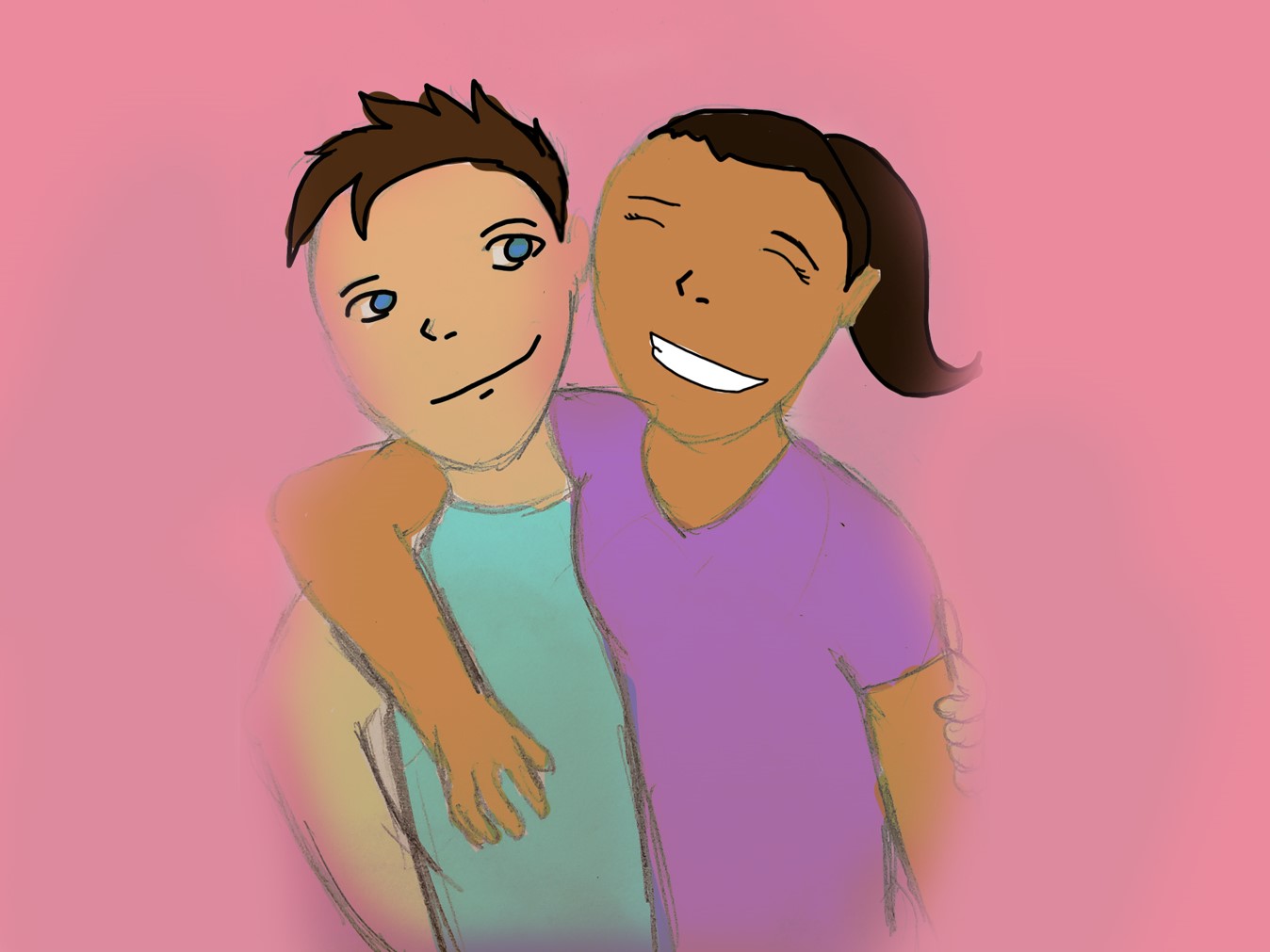A lot of people say to date your best friend, and many others say that you shouldn’t ruin the friendship. So, how do we decipher what’s truth and what’s biased fiction?
About six months ago, my best friend began showing romantic interest in me, and to be honest, I didn’t know how to handle it. My initial reaction was to reject the cute gestures and frank cheesiness, but after some authentic self-reflection, I knew that it was a relationship worth seeking. The mutual feelings were there — they always had been — so it was time to start seriously investigating.
Once we finally made things official, our relationship, both romantic and friendly, grew to new heights. Although our newborn adoration still demands growth and nourishment, it is clear to us that dating your best friend is, in fact, fun, lively and fruitful.
When debating whether or not to stir a romance between you and your best friend, here are a few pro and con variables you may want to take into consideration. We’ll start with the cons — it’s a short list.
Con: You might ruin your friendship.
This potentially negative aspect of dating your best friend is, in my opinion, a mere excuse for rejecting their romantic interest. I can say from personal experience that, at first, I did not pursue my current relationship in fear of ruining our established friendship — or so I told myself.
In reality, I wasn’t scared of ruining our friendship, but I was scared of the relationship itself. I had rooted myself so deeply in independence that the idea of sharing a life with someone else, well, terrified me. I ultimately used the cliche “ruining the friendship” verbiage as an excuse for underlying anxieties.
While a breakup could result in an ended friendship, the people that advise you to avoid dating your best friend are most likely still bitter about a past breakup. If you are using the “ruin your friendship” cliche when others question your relationship status, it may be time to reevaluate your intentions as well as your subconscious hesitations.
Disclaimer: If the feelings are not mutual, do not feel pressured to pursue the relationship romantically. However, if you’re reading this article, chances are that you’re in a similar mental state that I was in six months ago. Check your mind, check your external circumstances and check your heart before rushing into anything.
Pros:
1. The relationship is founded on trust.
The first, and arguably the most important, pro to dating your best friend is that your relationship is already founded on trust.
Trust is a fundamental basis for any close emotional connection — friendships and romantic relationships alike. Honestly, if you don’t trust your best friend, are they really your best friend? Probably not. The same holds true for boyfriends and girlfriends. If you don’t trust them, are you sure that you should be in a relationship with them?
Your trustworthy best friend will transfer to a trustworthy partner. Your two-sided honesty, openness and loyalty as friends will transform your relationship into one that carries the same values.
2. Awkward conversations aren’t as awkward.
Defining the relationship is awkward, but sometimes it’s imperative to sustain a healthy relationship. Whether you’re discussing your future as a couple, defining physical boundaries or casually conversing about sex, these conversations are not uncomfortable because you probably already had similar conversations during your friendship.
A seemingly innocent sex joke you laughed about as friends has the unique power to ease your relationship into serious conversations that establish consent, which are vital to physical relationships of all calibers. The more you talk about sex, the less awkward it will be.
3. They might already know your family, and you probably have mutual friends.
No one genuinely loves meeting the family. Meeting family means meeting standards, and the thought of disapproval always lingers in the back of your mind. If you’re friends with your partner prior to the relationship, however, you may already know the family, which makes for less stress during the early phases of the romance and leaves more room for enjoyment of the honeymoon phase.
Similarly, you probably already have mutual friends, and your romance may have derived from the same friend group. Meeting the friends, and therefore looking for approval from your friends and their friends, is accomplished before the dating even begins.
4. They know your habits, strengths and weaknesses and know how to adapt to them.
How well your partner knows you plays a crucial role in your emotional interactions with them, as well as in how you communicate with them. When they are already familiar with how you communicate and how you love, they can adapt their love and communication to meet your needs.
For example, I am naturally a very independent introvert, but I know that the way I communicate with my extraverted boyfriend must also fit his emotional needs. Likewise, he knows that I am primarily fulfilled through words of affirmation, so he intentionally displays his affection through encouragement, advice and compliments.
5. Your friendship will continue to flourish.
Even though you are in a romantic relationship with them, they still feel like a friend. You just might cuddle a little more than you did before. Sometimes, I forget that my boyfriend is actually my boyfriend, as many of our conversations are still light-hearted and friendly, our trust is still mutually strong and our primary friend group consists of the same friends as before.
Even though we may technically be more than friends, he still holds the title of best friend in my life.
Often, the positives that come from entering a serious relationship with your best friend override the scarce, potential negatives. Relationships can be nerve-wracking, but they can likewise be rewarding, fulfilling and long-lasting. When the opportunity of love arises and feels right, be sure to take advantage of it and the endearing memories that could come.
















